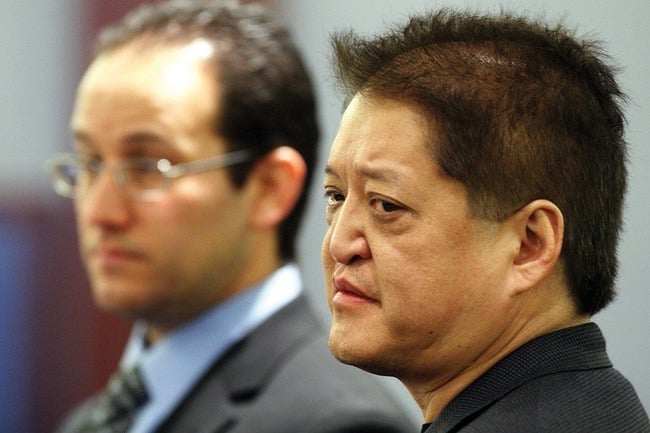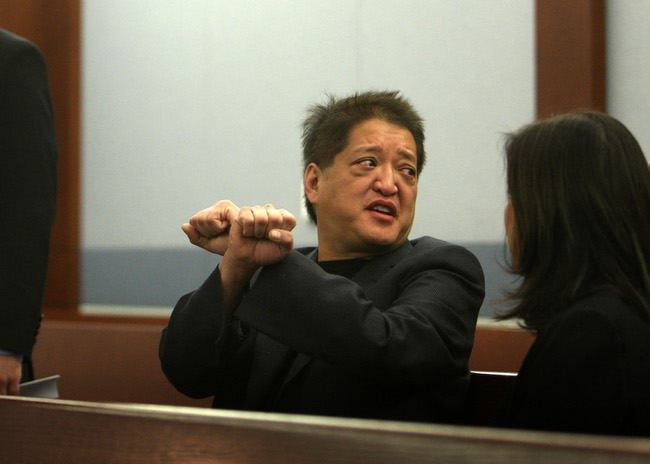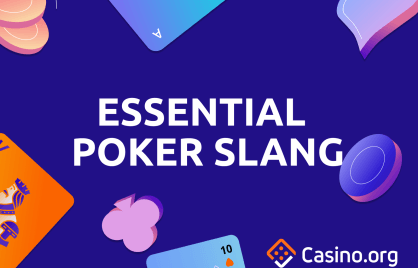The Rise and Fall of Terrence Watanabe: A High-Stakes Gambling Cautionary Tale

Summarize this post
- Wealth and Business Background: Terrence Watanabe, heir to the Oriental Trading Company, achieved substantial success in business, transforming his family’s company into a dominant force in the novelty import industry before selling it for over $400 million.
- Introduction to Gambling: Watanabe’s transition to gambling began at modest riverboat casinos, where he approached games like blackjack and roulette analytically, employing strategies that initially allowed him to enjoy recreational play without significant financial risk.
- High-Stakes Play in Las Vegas: After making the leap to Las Vegas casinos, Watanabe was treated like a high-roller and received luxurious accommodations, complimentary services, and special perks, which gradually led to more frequent and larger bets.
- Epic Gambling Losses: In 2007, Watanabe wagered approximately 825million,leading to unprecedented losses of 127 million for the year, significantly impacting the financial performance of Harrah’s Entertainment.
- Legal and Regulatory Fallout: Watanabe’s refusal to pay $14.7 million in gambling markers resulted in a complex legal battle that highlighted the intersection of personal responsibility and casino accountability, ultimately leading to a confidential settlement and changes in high-roller management practices across the industry.
The story of Terrence Watanabe serves as a fascinating exploration of wealth, high-stakes gambling, and the complexities of personal decision-making in the fast-paced world of casinos. As the heir to a successful business empire, Watanabe found himself drawn into the vibrant atmosphere of Las Vegas, where he embraced the thrill of gambling with both passion and tenacity.
His journey encapsulates the allure of high-stakes play and the captivating lifestyle that surrounds it, showcasing not just the excitement of the games but also the profound impact that choices can have on one’s life trajectory.
In this article, we will delve into the life of Terrence Watanabe, examining his rise to prominence, his experiences within the gambling industry, and the factors that ultimately led to a dramatic turn in his fortune.
As we navigate through his story, we will uncover the intricacies of his gambling ventures, the lavish rewards and pitfalls of high-stakes play, and the lessons learned from a life lived on the edge of fortune and fate. Join us as we take a closer look at the man behind the headlines and the world of high-stakes gambling that captivated him.

Image Credit: Christopher KLEBERT/Shutterstock
The Call – Las Vegas, November 2007
The story takes a dramatic turn in November 2007 when a call came into Caesars Palace at 3:47 AM on a Tuesday morning. A voice on the other end, slurred yet unmistakably familiar, requested that his usual table be prepared. “Mr. W is coming down,” a casino host communicated over the radio.
Within minutes, an entire section of the high-limit salon transformed into a setting reminiscent of a medical facility crossed with a gambling den.
What unfolded over the next eighteen hours remains a powerful life story. Terrence Watanabe, a 50-year-old heir to a novelty import fortune, methodically lost $5.2 million while consuming enough alcohol to incapacitate most individuals.
Personal attendants ensured his glass never emptied, prescription painkillers stayed within reach, and three blackjack tables remained continuously staffed for his exclusive use.
The Oriental Trading Company Dynasty
Born on November 14, 1957, in Omaha, Nebraska, Terrence Watanabe’s path to extraordinary wealth was forged through genuine business acumen rather than mere inheritance. His father, Harry Watanabe, founded the Oriental Trading Company in 1932, initially a small import business specializing in inexpensive novelty items for carnivals.
Under Harry’s guidance, the small operation evolved significantly. He understood that Americans had an insatiable appetite for fun and affordable products that could transform ordinary occasions into celebrations. This transformation garnered exceptional revenues, and by the mid-1990s, the company was generating over $100 million annually.
When Terrence joined the family business at age 15, he learned the ins and outs of the operations. By age 20, he had succeeded his father as CEO, implementing revolutionary inventory management systems and bulk pricing strategies that made the company a dominant force in the novelty industry.

Image Credit: STEVE MARCUS / LAS VEGAS SUN FILE
The Fateful Sale and its Aftermath
By 2000, Watanabe had achieved considerable success, dominating his market, generating massive profits, and providing employment for hundreds. However, personal stress began to mount, leading to the sale of Oriental Trading Company to a private equity firm in a deal estimated to be over $400 million.
The initial aftermath of the sale seemed promising. Watanabe became a prominent philanthropist, donating millions to local charities and educational institutions.
However, the sudden absence of professional purpose plunged him into an existential void. With newfound wealth and time but no clear direction, the analytical skills that had fueled his business success found no outlet.
First Steps into the Casino World
Watanabe’s introduction to casino gambling began casually at Harrah’s Council Bluffs. Initially, gambling provided convenient entertainment and social interaction. He started with blackjack and roulette, betting amounts that were significant but manageable compared to his net worth.
As he progressed, Watanabe approached gambling with the same analytical rigor he had applied in business. He studied games, adhered to basic strategies, and avoided many common mistakes. However, as his gambling became more frequent, the comfort and thrill began to overshadow the strategies, leading to a transition from responsible play to compulsive gambling.
The Growing Trap of Comfort and Confidence
As Watanabe grew more comfortable with gambling, so did his betting amounts and frequency of visits. What began as recreational gambling gradually morphed into a full-time occupation that filled his unscheduled days. The casino began to feel like his new office, with gambling evolving into an obsession rather than a pastime.
The Las Vegas Experience — A New High
Transitioning from modest riverboat casinos to the extravagant Las Vegas strip was a leap Watanabe was not fully prepared for. Caesars Palace and the Rio offered him unparalleled luxury and sophisticated gaming options. The casino identified him as a potential high-roller and customized high-end services to cater to his needs.
These services included luxurious suites complete with dedicated staff. Watanabe found himself in a tailor-made world where losing money felt less impactful, reinforced by perceptions of being valued and important. The casino environment became compelling, allowing him to indulge in a fantasy lifestyle that distracted him from the underlying risks.

Image Credit: Christopher KLEBERT/Shutterstock
The Mathematics of Destruction
The sheer scale of Watanabe’s gambling in 2007 requires an analysis of numbers so staggering they seem almost unreal. He wagered approximately $825 million, a sum comparable to the gross domestic product of small nations. His average betting amounted $2.26 million daily, transforming his gambling into an operation that could rival medium-sized businesses.
That year, his documented losses of $127 million represented an effective house edge of around 15.4% on his total action, suggesting that impaired decision-making compounded his financial disaster. The consequences of his choices took a hefty toll, severely damaging his financial standing.
The Epic Losses of 2007
The year 2007 became notorious as Watanabe’s most extreme gambling year, shattering records that remain unbroken in Las Vegas history. His losses significantly impacted the financial performance of Harrah’s Entertainment, constituting about 5.6% of the company’s total revenue for that year.
Legal Reckoning
The fallout from Watanabe’s gambling led to extensive legal complications when he ceased payments on approximately $14.7 million in gambling markers. This scenario initiated a tumultuous court battle that spotlighted the inadequacy of existing regulatory frameworks designed to protect gamblers.
The litigation raised questions about personal accountability versus institutional misconduct as Watanabe’s attorney argued that casinos were violating regulations by allowing him to gamble while visibly intoxicated.
Lessons from a Cautionary Tale
The story of Terrence Watanabe serves as both a cautionary tale and a source of hope. It underscores the complexities surrounding wealth and personal responsibility in gambling while reinforcing the need for accountability among both individuals and institutions.
A Legacy of Caution and Hope
Ultimately, Watanabe’s journey illustrates how quickly success can shift to tragedy due to a combination of poor decisions and ample opportunities for misguided behavior. Yet, it also exemplifies the path to recovery and rebuilding even after severe losses. In an industry often measured exclusively by financial success, Watanabe’s story highlights the importance of learning from experiences and helping others avoid similar pitfalls.
Title Image Credit: STEVE MARCUS / LAS VEGAS SUN FILE


